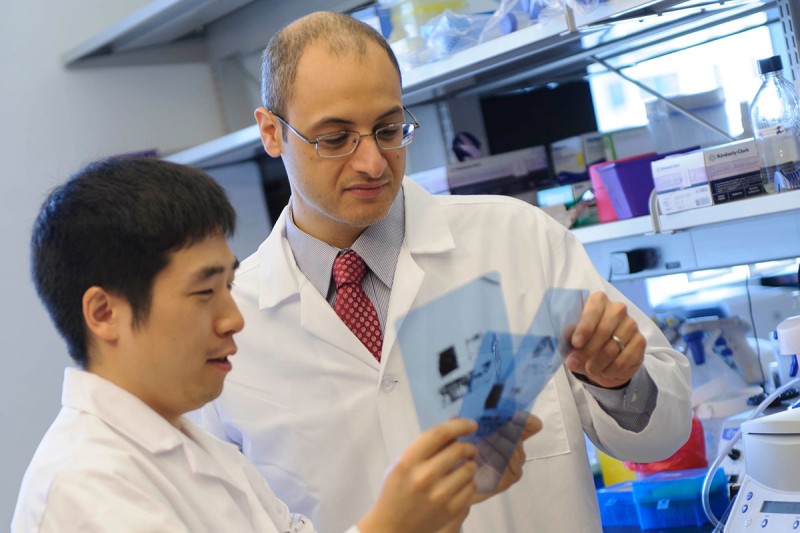
MSK is a major research institution. During your treatment for cancer, your care team may ask if you want to join a clinical trial.
What is a clinical trial?
Clinical trials are research studies that test new treatments, procedures, or devices to see how well they work. They are an important part of helping to prevent, treat, and cure cancer. Almost every cancer treatment given to patients was first tested during a clinical trial.
MSK tests new treatments for cancer. Treatment trials test new drugs, drug combinations, devices, and ways of doing procedures, surgery, or radiation therapy.
Sometimes a clinical trial gives you access to new therapies that are not yet available at most hospitals. Talk with your doctor about whether joining a clinical trial is right for you.
Clinical trials are designed to answer questions about:
- Safety
- Benefits
- Side effects
- Whether some people are helped more than others
MSK will start a clinical trial only if our researchers think we can improve methods for cancer:
- Prevention
- Treatment
- Diagnosis
- Screening
For more information, please read Clinical Trials at MSK: What You Need to Know.
How MSK is researching new treatments for histiocytosis
The work of MSK doctors and researchers has led to important new histiocytosis treatments.
We directed clinical trials that led to approval of vemurafenib (Zelboraf®) for Erdheim-Chester disease (ECD) by the U.S. Food and Drug Administration (FDA). MSK also led research on cobimetinib (Cotellic®) for ECD, Langerhans cell histiocytosis, and Rosai-Dorfman disease.
MSK researchers have found many genetic changes (mutations or variants) that can cause histiocytosis. These findings expand our understanding of this condition and can lead to new treatments.
You may be able to join a clinical trial at MSK of a promising new treatment. We also offer clinical trials as members of the North American Consortium for Histiocytosis (NACHO) and the Children Oncology Group (COG).
See a list of clinical trials for histiocytosis at MSK that are enrolling people.
Our researchers are doing other studies at MSK. To learn more, call 833-MSK-KIDS (833-675-5437) or email us at [email protected]
The genetics of histiocytosis
MSK is the leading center for research on the genetics of histiocytosis. We offer the latest genetic testing on all histiocytosis tissue samples through MSK-IMPACT.
We use these genetic findings to develop new treatments. Our team has several projects that explore gene mutations that cause histiocytosis and other blood cancers. We’re also studying new ways, including blood testing, to look for mutations linked to histiocytosis.
Histiocytosis registry
MSK leads a registry study that follows people with histiocytosis over time. This lets us see what treatments have worked best for each type of histiocytosis. The registry also lets us study issues important to people with the disease. These include symptoms, treatment side effects, and quality of life.
For this registry, people complete surveys about their experiences. Anyone with histiocytosis can join this registry, whether or not you’re being treated at MSK. Please email us at [email protected] to learn more about the registry or to sign up.
Brain imaging and histiocytosis
Many people with histiocytosis have problems with thinking and memory. We’re doing a study that looks at how the brain works in people with histiocytosis.. We hope to learn more about these symptoms. The study uses MRI scans of the brain and written tests to assess concentration, language, attention, and memory.
Learning about histiocytosis caregivers
Caregivers can be friends or family members who give unpaid help and support to people with cancer and other illnesses. Being a caregiver for someone with histiocytosis can be challenging.
At MSK, we’re researching the experience of being a histiocytosis caregiver. We want to learn how we can better support caregivers’ needs. If you would like more information about this study, please email [email protected]
We’re available 24 hours a day, 7 days a week


